Sapna Jarial, Rachika Komal and and Poornima Jha participated and contributed in the “National Workshop on Advances in Social and Behavioral Science Research” held from March 4-8, 2019 in Gurugram, Haryana, and jointly organised by SMSF, CRISP, MANAGE, ICAR-CTCRI, & AESA. They share their understanding of the sessions here.
CONTEXT
Social and behavioural science research is one of the key constituents for India`s economic growth which is propelled due to digital revolution as well as biophysical and social changes influencing sectors including agriculture, industries and services. As research proposes evidence-based solutions to pressing development problems, strengthening research in social and behavioural sciences is important. In this context, social and behavioural scientist needs more opportunities for strengthening their research competencies and professional practices through continuous education and training.
This residential workshop was organized in collaboration with the Agricultural Extension in South Asia (AESA) https://www.aesanetwork.org/, Centre for Research on Innovation and Science Policy (CRISP) http://crispindia.org/, ICAR-Central Tuber Crops Research Institute (ICAR-CTCRI) http://www.ctcri.org/, National Institute of Agricultural Extension Management (MANAGE) http://www.manage.gov.in/ and Suri Mehta Sehgal Foundation (SMSF) http://www.smsfoundation.org/. It was aimed at equipping scientists, development professionals, academicians, and research scholars from extension, economics, sociology, psychology, social work, business management, and other related disciplines with critical skills in conducting and publishing empirical social and behavioural science research. The workshop served as a platform for stakeholders involved in research to discuss contemporary methodologies and issues of developmental research within their disciplines.
This residential workshop broadly covered the following topics: Research planning; specifying research problems, questions, and objectives; critical review of literature; specifying concepts, constructs, and hypotheses; choosing a “right” research design, methods and tools; online data collection, sampling techniques and conducting research. It also focussed on field data collection and management; techniques of reducing biases; reliability and validity assessment; analysis and interpretation of data. Data cleaning and basic statistical analysis/univariate and multivariate; advanced methods scale development/factor analysis; conjoint analysis; qualitative content analysis/thematic analysis.
The key resource persons were: – Ms Niti Saxena, Director, Development Research and Policy Initiatives, SMSF; Dr P Sethuraman Sivakumar, Principal Scientist, ICAR-CTCRI, Dr Rasheed Sulaiman V, Director, CRISP and Dr Saravanan Raj, Director (Agricultural Extension), MANAGE.
A diverse mix of 36 participants – comprising practising professionals and several research scholars primarily from institutions from northern India participated in the 5-day programme. Information on presentations and activities scheduled for the week were shared through regular e-mails. A WhatsApp group was created for workshop participants and organisers.
PROGRAMME
Day 1
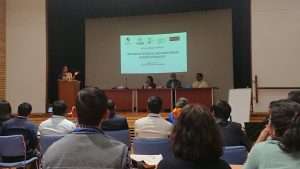 The workshop started with a formal welcome by Ms Anjali Makhija (Chief Operating Officer, SMSF), and brief remarks by Dr Rasheed Sulaiman V (Director, CRISP). Dr P Sethuraman Sivakumar (Principal Scientist, (ICAR-CTCRI) and Ms Niti Saxena (Director, SMSF) ), welcomed the participants with a brief note on AESA and its collaborators followed by a vote of thanks by Dr Aparna Radhakrishnan (Senior Research and Policy Associate, SMSF). Dr Rasheed Sulaiman V presented the workshop objectives and set the context of the workshop.
The workshop started with a formal welcome by Ms Anjali Makhija (Chief Operating Officer, SMSF), and brief remarks by Dr Rasheed Sulaiman V (Director, CRISP). Dr P Sethuraman Sivakumar (Principal Scientist, (ICAR-CTCRI) and Ms Niti Saxena (Director, SMSF) ), welcomed the participants with a brief note on AESA and its collaborators followed by a vote of thanks by Dr Aparna Radhakrishnan (Senior Research and Policy Associate, SMSF). Dr Rasheed Sulaiman V presented the workshop objectives and set the context of the workshop.
Dr Rasheed emphasised that most of the MSc/PhD research has limited policy relevance and the discipline has generally seen a decline in scientific rigour. He also said that such a workshop is imperative so that the participants can apply new knowledge learnt in their current and future work, enhance cross learning, share experiences, continue professional exchange in future and undertake more collaborative research which will generate better research outputs.
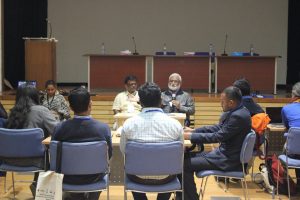
Rasheed Sulaiman V, P S Sethuraman and Niti S briefed on current opportunities and future prospects in extension/ social science. Main takeaway messages were – need for sound impact assessment, each step (first step-last) of research is important; i.e., it’s important to have mid-term monitoring, end line assessment and to raise policy relevant questions.
Next session, essentially an ice breaking session started off with a brief self-introduction of participants. Thereafter, ‘Mentimeter app’ was use for capturing participants’ expectations about the workshop.
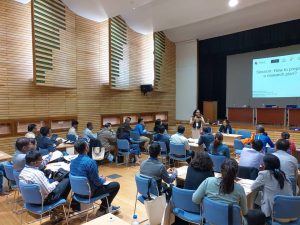 After lunch, Dr Aparna Radhakrishnan and Ms Nimisha Mittal (Lead Researcher, CRISP) presented on ‘How to prepare a research plan?’. Aparna emphasised that the topic chosen must be interesting, feasible and she introduced the participants to the concept of literature review using meta data analysis. “Based on the theory, frame a question then run a search in Pubmed/Medline/Google Scholar. Analyse using Cochran Q test, and learn about the trends in review of literature,” she said. Nimisha talked about the rationale for making a research plan: “The purpose should be clear, whether it’s for planning or for writing a paper or a study”. She presented CRISP’s experience in conducting research by citing cases of – seed as value chain, seed as input by giving example of rice stress tolerant resistant varieties in India and Nepal, and emphasised that apart from desk review, take different actors perspective, and prepare checklist for a research plan.
After lunch, Dr Aparna Radhakrishnan and Ms Nimisha Mittal (Lead Researcher, CRISP) presented on ‘How to prepare a research plan?’. Aparna emphasised that the topic chosen must be interesting, feasible and she introduced the participants to the concept of literature review using meta data analysis. “Based on the theory, frame a question then run a search in Pubmed/Medline/Google Scholar. Analyse using Cochran Q test, and learn about the trends in review of literature,” she said. Nimisha talked about the rationale for making a research plan: “The purpose should be clear, whether it’s for planning or for writing a paper or a study”. She presented CRISP’s experience in conducting research by citing cases of – seed as value chain, seed as input by giving example of rice stress tolerant resistant varieties in India and Nepal, and emphasised that apart from desk review, take different actors perspective, and prepare checklist for a research plan.
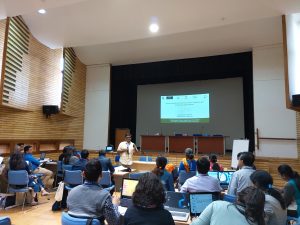 Dr P S Sethuraman presented on methods for identifying research problems, constructs, variables, and hypotheses. Steps for conducting research, distinction between research topic, research problem, research purpose and research questions, construct conceptualization, role of theory in social research, and measurement theories were discussed. He also spoke about ways of conceptualizing a phenomenon based on concreteness and observability; the three worlds- real, observed and measured. Participants also learnt about the importance of narrative hooks from his presentation.
Dr P S Sethuraman presented on methods for identifying research problems, constructs, variables, and hypotheses. Steps for conducting research, distinction between research topic, research problem, research purpose and research questions, construct conceptualization, role of theory in social research, and measurement theories were discussed. He also spoke about ways of conceptualizing a phenomenon based on concreteness and observability; the three worlds- real, observed and measured. Participants also learnt about the importance of narrative hooks from his presentation.
Dr Pradeep Kumar Mehta (Director, Research Monitoring and Evaluation, SMSF) and Ms Niti S elaborated on experiential insights on tab-based data collection. They emphasised on tab-based digital data collection as an effective and efficient way of collecting data as it allows real time monitoring and validation. It also helps in restricting illogical outliers and unfilled responses which leads to time efficiency.
In the next session, Dr Sethuraman presented on basic statistics. He briefed the participants on the questions to be answered by basic statistics, such as, ‘What is going on’ by frequencies, mean, median, SD; relationship by correlation; causation by regression, comparisons – by t test, ANOVA and similarities by factor/cluster analysis. He also outlined levels of measurement and types of variables followed by guidelines for choosing statistical tests, tests of significance, critical region and elaborated on various tests.
Day 2
Recap of Day 1 was jointly presented by Professor Lahiri, a participant and Dr Aparna Radhakrishnan. In the first session of the day, Dr Sethuraman presented on ‘Methods of sampling and estimation of sample size’ followed by a hands-on exercise and case studies and was assisted by M Karthik and Malisha from SMSF. In this session, various day-to-day examples were cited to explain how errors and biases creep in and could impair research credibility. He talked on various types of errors and biases in different data collection methods, such as sampling errors, non-sampling errors, falsification errors, survey errors, nuances and tricks which could help in avoiding and controlling such errors.
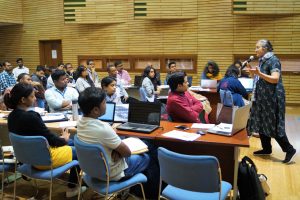 Dr Rajeshwari Raina (C-PAT, School of Humanities & Social Research, Shiv Nadar University) gave a presentation on exploring the relationship between knowledge, technology and role of policy in social sciences. In her presentation she cited the case of Punjab and Haryana water problems arising due to gypsum subsidy provided by Ministry of Agriculture. She cited examples that linked knowledge, policy and technology. She elaborated on technology determinism and technology treadmill interplay with knowledge. She also talked about earlier linear approach of research in extension to the present approach of networks, RAFT theory or cell theory that science works through falsification; truth as we know it now. She also spoke of JS Bhalla’s double agriculture burden and detailed five policy model.
Dr Rajeshwari Raina (C-PAT, School of Humanities & Social Research, Shiv Nadar University) gave a presentation on exploring the relationship between knowledge, technology and role of policy in social sciences. In her presentation she cited the case of Punjab and Haryana water problems arising due to gypsum subsidy provided by Ministry of Agriculture. She cited examples that linked knowledge, policy and technology. She elaborated on technology determinism and technology treadmill interplay with knowledge. She also talked about earlier linear approach of research in extension to the present approach of networks, RAFT theory or cell theory that science works through falsification; truth as we know it now. She also spoke of JS Bhalla’s double agriculture burden and detailed five policy model.
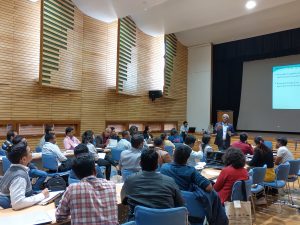 In the next session, Prof Dr L Venkatachalam (Professor, Madras Institute of Development Studies; RBI Chair) presented on ‘Research designs, methods, and tools for hands-on exercise in selection of research designs and methods’. He shared that science expands through ‘falsification’ of existing theories. “All theories have some weakness in predictive power and Koontz suggests expanding knowledge. Research design is contingent upon research question, research methodology executes the research plan (qualitative, quantitative and mixed),” he said. Qualitative methods include observation, semi-structured interviews and focus group discussions. Information of falsification can be obtained from secondary data and primary survey. He talked about natural experiments which are field experiments (randomized control trials, and quasi experiments). He also talked about probability sampling and non-probability sampling and errors associated with it. Lastly, he spoke of laboratory, field and randomized experiments.
In the next session, Prof Dr L Venkatachalam (Professor, Madras Institute of Development Studies; RBI Chair) presented on ‘Research designs, methods, and tools for hands-on exercise in selection of research designs and methods’. He shared that science expands through ‘falsification’ of existing theories. “All theories have some weakness in predictive power and Koontz suggests expanding knowledge. Research design is contingent upon research question, research methodology executes the research plan (qualitative, quantitative and mixed),” he said. Qualitative methods include observation, semi-structured interviews and focus group discussions. Information of falsification can be obtained from secondary data and primary survey. He talked about natural experiments which are field experiments (randomized control trials, and quasi experiments). He also talked about probability sampling and non-probability sampling and errors associated with it. Lastly, he spoke of laboratory, field and randomized experiments.
Ms Neeta Goel and Ms Francis Rathinam (3ie) discussed ‘Causal inference and RCTs, Natural Experiments and its types, strengthening causal inference and reporting, checklist, and limitations of natural experiments’. They elaborated on how Dr John Snow started evaluation on ‘cholera is caused by polluted air’ and gave evidence to prove that cholera is water borne disease and not caused by polluted air. They further talked about types of Natural experiments, random assignment (true experiments) and as If-random example quoted was from military Vietnam war drafts. Francis R gave evaluation examples from fish market study and bicycle experiments in Bihar. The 3ie team used interactive approach in their presentation.
In the post lunch session, Dr Sethuraman further elaborated on the ‘sampling strategy – probability sampling and non-probability sampling’. Under probability sampling he briefed on simple random sampling to be used when population is large, cluster sampling or area sampling, systematic sampling, stratified random sampling, unequal probability sampling and multistage sampling. Under non-probability sampling- samples are selected based on subjective criteria – easily available, convenient, and represent some characteristic the investigator seeks to study and its type were purposive or judgemental sampling, snowball sampling, and quota sampling. He also explained how to estimate sample size using a formula. Other sample size guidelines such as pilot testing, and sample sizes for qualitative studies were also explained in detail. Participants were divided into groups for SPSS hands-on exercises. Additional themes were proposed for participants’ presentations and group work at the end of the workshop.
In his skype session, Dr Sridhar Gautam talked about ‘Open access’ in publication. He informed the participants about various sources of open accesses such as AgriXiv, preprints repository for Agriculture & Allied Sciences <https://agrixiv.org/>,Creative Commons <https://creativecommons.org/>,DOAJ – Directory of Open Access Journals <https://doaj.org/>, Force11 <https://www.force11.org/>, Forum for Open Access in South Asia <https://opensouthasia.wordpress.com/>, Open Access India <http://openaccessindia.org/>,Open Access Netherlands <https://www.openaccess.nl/en>and many more. He gave an overview on Open Access and informed the participants to check about a journal through the link ‘Think Check Submit’<https://thinkchecksubmit.org/>.
Day 3
After a recap from Ms Chaya Bhanti, the third day of the workshop began with a presentation from Mr Rasheed SV on publishing research. He informed the participants about publications in social science research and various facets of publishing research. He gave details on various unexplored mediums through which extension scientists can publish their research, such as, in the form of blogs or working papers/good practice notes in certain niche domains rather than only focusing on high-impact journals. He informed the participants on how the review process is carried out, and how the reviewer’s constructive suggestions can help in improving the manuscript. He talked about publishing practices: guided the participants that not to use the same data sets in more than one paper.
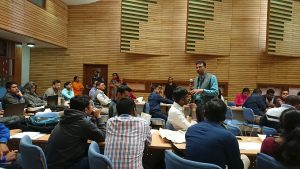 Dr PVK Sasidhar (Director, School of Extension and Development Studies, Indira Gandhi National Open University (IGNOU) presented on ‘Current Practices in Monitoring and Evaluation (M&E) – Programme Evaluation’. He enlightened the participants on the fact that evaluation is assessing as systematically and objectively as possible about: inputs, outputs and outcome, within stated criteria and indicators and point of time. He also described the need for evaluation, output vs outcome (output is the immediate benefit realized from the project, outcome is the long-term measure), Log Frame Analysis (LFA) and Bennet’s hierarchy as evaluation methodology and shared that evaluation is neglected and mistakenly seen as a ‘fault finding’ mechanism. He emphasised that learning process and past experiences guide us to a better future hence the need to have a robust M & E.
Dr PVK Sasidhar (Director, School of Extension and Development Studies, Indira Gandhi National Open University (IGNOU) presented on ‘Current Practices in Monitoring and Evaluation (M&E) – Programme Evaluation’. He enlightened the participants on the fact that evaluation is assessing as systematically and objectively as possible about: inputs, outputs and outcome, within stated criteria and indicators and point of time. He also described the need for evaluation, output vs outcome (output is the immediate benefit realized from the project, outcome is the long-term measure), Log Frame Analysis (LFA) and Bennet’s hierarchy as evaluation methodology and shared that evaluation is neglected and mistakenly seen as a ‘fault finding’ mechanism. He emphasised that learning process and past experiences guide us to a better future hence the need to have a robust M & E.
Dr Dipankar, Indian Agricultural Statistics Research Institute (IASRI) together with Dr Sethuraman SP took the presentation forward on data preparation on method of collecting, cleaning and consolidating data to further use for analysis. They expounded on steps in data preparation: variable identification, missing data treatment, outlier treatment, testing assumptions for statistical analysis and data transformation. Participants were informed about treatment of missing data through deletion or through imputation methods, outliers and how to deal with them and detect them using box plots linearity and multicollinearity. Participants also underwent a hands-on exercise to practically understand this concept.
During the next session, Dr Sethuraman, assisted by Mr Karthik, talked about multivariate research methods, principle component analysis: for select linear combinations of variables to reduce data and multicollinearity can be removed. This is achieved by standardization of raw data before analysis. Further, the differences between using SPSS vs R and SPSS vs SPSS Amos were discussed. Further Dr Sethuraman enthused on modelling human decision using LOGIT & PROBIT. Binary Logistic regressions method is used where dependent variable has two or three levels. Binary Logistic Regression is widely used in medical industry or in diagnostic operations. Further he informed the stages of LOGIT analysis, PROBIT model is used to predict the probability of future outcome with hands-on experience for which data sets were shared on previous day. He also elaborated the Conjoint Analysis, a survey-based statistical technique that helps determine how people value different attributes that make up an individual product or service. A hands-on experience on use of Orthogonal design matrix to supplement conjoint analysis was also accomplished.
The day ended with presentation on Scale Development using factor analysis and objectives of Factor analysis. Dr Sethuraman emphasized that Exploratory factor analysis is generally used for social science related to research with behavioural component rather than Principal component analysis. And participants tried a hands-on exercise on SPSS Amos graphics.
Day 4
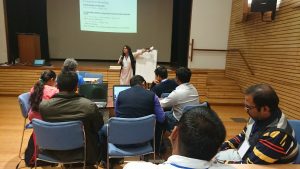 After the recap from Ms Poornima Jha, the first presentation of the day began with Panel Data Analysis – by Dr Seema Sangita (Assistant Professor, TERI School of Advanced Studies). She illustrated the types of data – as time series data, cross section data &panel data. She also elaborated on advantages of panel data, that it can be used for large sample size; measures effects that cannot be measured with cross/time, can study dynamics of change; control heterogeneity over space/time; and reduce biases. She further explained about between (time invariant) and within variation (time variant), econometric modelling for panel data analysis using basic model or pooled OLS, fixed effects model/least square dummy variable regression model and double differential/difference in difference model. She used the example of impact of Tenancy Reforms on Agricultural Productivity: Operation Barga in West Bengal.
After the recap from Ms Poornima Jha, the first presentation of the day began with Panel Data Analysis – by Dr Seema Sangita (Assistant Professor, TERI School of Advanced Studies). She illustrated the types of data – as time series data, cross section data &panel data. She also elaborated on advantages of panel data, that it can be used for large sample size; measures effects that cannot be measured with cross/time, can study dynamics of change; control heterogeneity over space/time; and reduce biases. She further explained about between (time invariant) and within variation (time variant), econometric modelling for panel data analysis using basic model or pooled OLS, fixed effects model/least square dummy variable regression model and double differential/difference in difference model. She used the example of impact of Tenancy Reforms on Agricultural Productivity: Operation Barga in West Bengal.
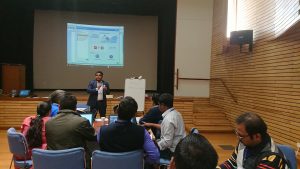 Dr Sanjit Maiti (National Dairy Research Institute (NDRI)), in a highly interactive session expounded on index construction. Index is sign/measure of something, not an absolute number (e.g. SENSEX), he gave index characteristics as robust, discriminating, efficient &effective. He also explained the steps for index construction as -finalize the component; finalize the sub-component; data collection; data transformation – normalization and standardization; suitability test; item analysis and finally obtain Index value. He shared his publications for further reading.
Dr Sanjit Maiti (National Dairy Research Institute (NDRI)), in a highly interactive session expounded on index construction. Index is sign/measure of something, not an absolute number (e.g. SENSEX), he gave index characteristics as robust, discriminating, efficient &effective. He also explained the steps for index construction as -finalize the component; finalize the sub-component; data collection; data transformation – normalization and standardization; suitability test; item analysis and finally obtain Index value. He shared his publications for further reading.
Next presentation of the day was on Qualitative Methodologies by Ms Nimisha; she talked about changing global scenario, renewed interest in pluralism, wide range of approaches, new capacities and increasing demand for evidence and impact led to new challenges, tasks, global priorities, actors, recognition and understanding. She talked about data collection dos and don’ts – as empathy, curiosity, rapport building, leave your biases at home and enjoy the experience.
Qualitative content analysis presentation was given by Mr Saksham Singh who shared his experience on Project – Digital Literacy: Window to a new world. The project was launched in four villages – Nuh, Haryana and Alwar, Rajasthan with youth aged 15 and above. The youth training components were life skills, governance & computer literacy. Findings revealed significant expectation and aspiration gap, no significant increase in decision making and confidence.
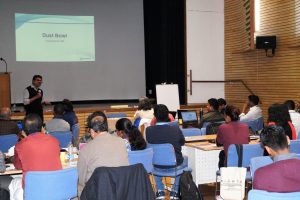 Mr Ajith Radhakrishnan (World Bank Group), gave a presentation on Policy Research & Evaluation in Extension. He shared storytelling examples– Play Pumps in Africa, Dust Bowl in USA, APMC Reforms and how public money was wasted. Lessons that could be learnt from these examples were how public resource wastage can be reduced by finding better impact pathways, triggering unforeseen impacts exploring multidimensional impacts. He shared a successful example of innovative financing by citing the Karnataka Sugarcane Drip Model.
Mr Ajith Radhakrishnan (World Bank Group), gave a presentation on Policy Research & Evaluation in Extension. He shared storytelling examples– Play Pumps in Africa, Dust Bowl in USA, APMC Reforms and how public money was wasted. Lessons that could be learnt from these examples were how public resource wastage can be reduced by finding better impact pathways, triggering unforeseen impacts exploring multidimensional impacts. He shared a successful example of innovative financing by citing the Karnataka Sugarcane Drip Model.
Mr Subash SP (Scientist, National Institute of Agricultural Economics and Policy) gave a presentation on Social Network Analysis (SNA). He informed the participants that social network is a set of nodes and edges. This approach uses disciplines of sociology, psychology, maths and anthropology. SNA helps us to understand impact pathways. Mapping network involves sociometry, graph theory and computational algorithms. Quantitative Analysis is used for measuring degree centrality, closeness centrality and betweenness centrality. Through skype, theory of Social Network Analysis was presented by Dr Annemie Maertens (Senior Lecturer, Department of Economics, University of Sussex). She explained other empirical matters such as ‘how do you define a sample’? She cited an example of Bt Cotton survey.
Day 5
Recap by Ms Rachika Komal was done on 5th day. Presentation on research proposal writing in social and behavioural research (various schemes, CFP in social research) was given by Ms Niti S and Mr Saurabh Sood.
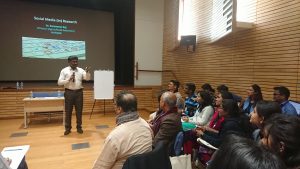 Dr Sarvanan Raj in an interactive and participatory session presented on the role of social media in research. He shared with the participants various social media tools and cited an example of Facebook for Agriculture Research for Development (AR4D) and presented the case and asked the participants what kind of research could be taken. He talked about use of WhatsApp in AR4D giving example of Punjab farmers turning to WhatsApp group for farming solutions, YouTube in AR4D, World Bank blogs. He talked about Agriculture Extension in South Asia (AESA) platform for -sharing, learning and networking for innovation. He shared about social media as a research tool, research on activity and content on subject matter, shared social media methodology spectrum. He further shared on challenges and opportunities in social media research regarding validity and reliability. He shared publications of Global Forum for Rural Advisory Services (GFRAS- https://g-fras.org/), publication of MANAGE for example Extension next- social media for agricultural extension.
Dr Sarvanan Raj in an interactive and participatory session presented on the role of social media in research. He shared with the participants various social media tools and cited an example of Facebook for Agriculture Research for Development (AR4D) and presented the case and asked the participants what kind of research could be taken. He talked about use of WhatsApp in AR4D giving example of Punjab farmers turning to WhatsApp group for farming solutions, YouTube in AR4D, World Bank blogs. He talked about Agriculture Extension in South Asia (AESA) platform for -sharing, learning and networking for innovation. He shared about social media as a research tool, research on activity and content on subject matter, shared social media methodology spectrum. He further shared on challenges and opportunities in social media research regarding validity and reliability. He shared publications of Global Forum for Rural Advisory Services (GFRAS- https://g-fras.org/), publication of MANAGE for example Extension next- social media for agricultural extension.
A tour of the SMSF building was organized for the participants.
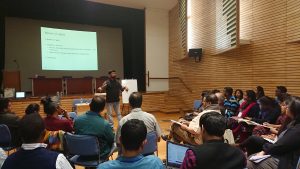 Dr Arul George Scaria (Assistant Professor, National Law University, Delhi) presented on Copyright and Intellectual Property Rights (IPR) in research. He talked about patent, trademark, copyright publication, trade secrets IRP, pixabay.com from where open access quality photos can be downloaded and contributed and talked about Sec 52 (1) a, licence to produce an article. He also shared the famous case of Chancellor, Masters and Scholars of University of Oxford and others versus Rameshwari Photocopy Services and another- Intellectual Property – Copyright Act, 1957 – Infringement of Copyright – Challenged – Plaintiffs filed suit for relief of permanent injunction restraining two Defendants from infringing copyright of Plaintiffs in their publications by photocopying, reproduction and distribution of copies of Plaintiffs’ publications on large scale and circulating same and by sale of unauthorized compilations of substantial extracts from Plaintiffs’ publications by compiling them into course packs / anthologies for sale – Defendant filed written statement defending suit inter alia disputing copyright of Plaintiffs and contending that Plaintiffs had not produced any document to establish their copyright and denying any act of infringement of copyright – Hence, instant suit – Whether, actions of Defendants was amounting to infringement of copyright of Plaintiffs. Held, legislature having abrogated natural or common law rights of authors and composers; and b) and having statutorily enacted what is copyright; and c) having made what is copyright also subject to other provisions of Act; and d) having in successive provisions of Statute prescribed ‘when copyright infringed’ and ‘certain acts not to be infringement of copyright’; and having vested right to civil remedies only to situations when copyright is infringed, rules of interpretation of Statutes as applicable to Proviso and Exception cannot be applied to s. 52 of Act.
Dr Arul George Scaria (Assistant Professor, National Law University, Delhi) presented on Copyright and Intellectual Property Rights (IPR) in research. He talked about patent, trademark, copyright publication, trade secrets IRP, pixabay.com from where open access quality photos can be downloaded and contributed and talked about Sec 52 (1) a, licence to produce an article. He also shared the famous case of Chancellor, Masters and Scholars of University of Oxford and others versus Rameshwari Photocopy Services and another- Intellectual Property – Copyright Act, 1957 – Infringement of Copyright – Challenged – Plaintiffs filed suit for relief of permanent injunction restraining two Defendants from infringing copyright of Plaintiffs in their publications by photocopying, reproduction and distribution of copies of Plaintiffs’ publications on large scale and circulating same and by sale of unauthorized compilations of substantial extracts from Plaintiffs’ publications by compiling them into course packs / anthologies for sale – Defendant filed written statement defending suit inter alia disputing copyright of Plaintiffs and contending that Plaintiffs had not produced any document to establish their copyright and denying any act of infringement of copyright – Hence, instant suit – Whether, actions of Defendants was amounting to infringement of copyright of Plaintiffs. Held, legislature having abrogated natural or common law rights of authors and composers; and b) and having statutorily enacted what is copyright; and c) having made what is copyright also subject to other provisions of Act; and d) having in successive provisions of Statute prescribed ‘when copyright infringed’ and ‘certain acts not to be infringement of copyright’; and having vested right to civil remedies only to situations when copyright is infringed, rules of interpretation of Statutes as applicable to Proviso and Exception cannot be applied to s. 52 of Act.
Wrap up, reflections and feedback were conducted by Ms Nimisha M and Ms Niti S. Using ‘Mentimeter app’ participants’ feedback was recorded. Participants were also asked to share their feedback in which they expressed an interest to learn about tools like STATA, R, Projective and non-projective techniques, PRA methods and more non-agricultural methodologies and rated Dr Sethuraman as an inspiration and exemplary guide/teacher. Participants felt that this was quite a useful and unique training which was also a value for money since this was a partly paid programme. They also emphasised on the need for more such trainings. The training venue, style of training were participatory, and workshops ended till late evenings. Dr Sarvanan R (Director, MANAGE) was the guest of honour during the valedictory session. Ms Anjali Makhija (Chief Operating Officer, SMSF), Dr Sethuraman SP (Principal Scientist, ICAR-CTRI), Mr Ramesh Kapahi (Chief Financial Officer, SMSF) presided on dais and shared their feedback regarding the residential workshop as a good example of public private partnership and presented certificates to the participants.
OUR IMPRESSIONS
Participants felt increased confidence and wanted to re-look their data based on the newly acquired skills. Some participants were glad to meet and network with other professionals working in social sciences. The group of 36 participants were from different parts of India, comprising teaching professionals, scientists, consultants, and students from various sub-disciplines of agricultural and allied social sciences. The mutual interaction and coordination between resource persons and participants made the workshop more productive.
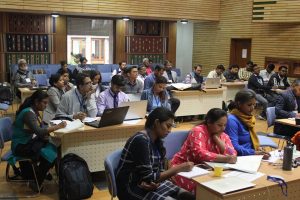 The workshop sessions were novel, interactive, and the workshop schedule was flexible and systematic. The organisers of the programme took utmost care to implement the classes according to the well-planned schedule. The time constraint in covering the sessions was adjusted by extending the sessions till late evenings and yet quality of coverage of the topics was excellent. Each session of the workshop focused on the advanced methods and tools along with examples for mixed methods. Questions were taken at the end of each topic. The workshop ended on 8th March and International women’s day was celebrated at end of the workshop by serving tea to all the female participants. As a mini survey of participants and trainers was conducted by Milan Subedi (Assistant Prof- participant from Nepal), two days ago regarding who makes morning tea in your house, it was revealed that in majority women members make the morning tea.
The workshop sessions were novel, interactive, and the workshop schedule was flexible and systematic. The organisers of the programme took utmost care to implement the classes according to the well-planned schedule. The time constraint in covering the sessions was adjusted by extending the sessions till late evenings and yet quality of coverage of the topics was excellent. Each session of the workshop focused on the advanced methods and tools along with examples for mixed methods. Questions were taken at the end of each topic. The workshop ended on 8th March and International women’s day was celebrated at end of the workshop by serving tea to all the female participants. As a mini survey of participants and trainers was conducted by Milan Subedi (Assistant Prof- participant from Nepal), two days ago regarding who makes morning tea in your house, it was revealed that in majority women members make the morning tea.
Last but not the least, participants shared their gratitude for conducting residential workshop at Gurugram Haryana as it was for the first time such a residential workshop was conducted in northern India. Participants thanked all the collaborators SMSF, ICAR-CTCRI, MANAGE, CRISP, and AESA for making it possible.
“We are all grateful to the contacts made through the workshop and will continue to use this platform for information sharing and collaborative learning.”
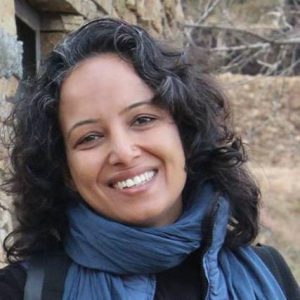 Sapna Jarial is an Independent consultant with the Greencore Solutions (Email:sapnajarial@outlook.com)
Sapna Jarial is an Independent consultant with the Greencore Solutions (Email:sapnajarial@outlook.com)
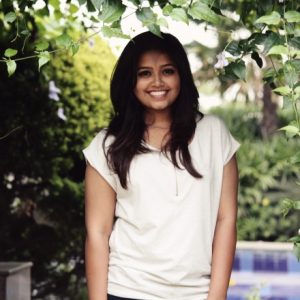 Rachika Komal is Researcher at Collective Mind of N Lab Private Limited; Behavior Education Services Team (Email: rachika.komal@gmail.com) and
Rachika Komal is Researcher at Collective Mind of N Lab Private Limited; Behavior Education Services Team (Email: rachika.komal@gmail.com) and
 Poornima Jha is Student, M.A. Development Studies, Indira Gandhi National Open University (Email: poornima.jha16@gmail.com)
Poornima Jha is Student, M.A. Development Studies, Indira Gandhi National Open University (Email: poornima.jha16@gmail.com)

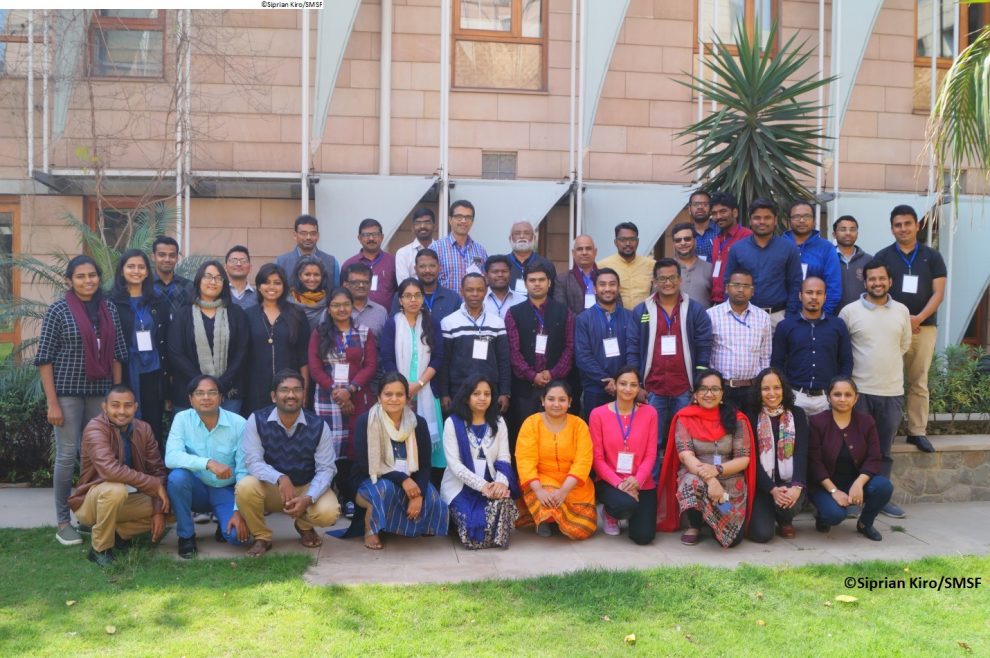
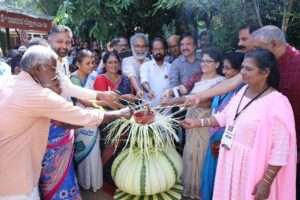

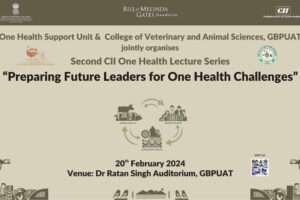
Add Comment